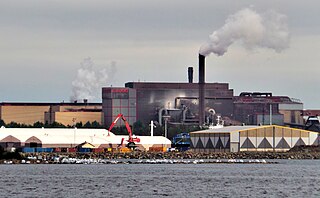External links
| | This international development-related article is a stub. You can help Wikipedia by expanding it. |
| Abbreviation | CWB |
|---|---|
| Formation | 2004 |
| Type | INGO |
Region served | Worldwide |
Official language | English |
| Website | CWB Official website |
Chemists Without Borders is a non-governmental organization involved in international development work designed to solve humanitarian problems through chemistry and related activities. As a public benefit, non-profit organization, the primary goals of Chemists Without Borders include:
Chemists Without Borders was founded in 2004 by Bego Gerber and Steve Chambreau as a result of a letter that Gerber sent to the editor of Chemical and Engineering News in September 2004.
| | This international development-related article is a stub. You can help Wikipedia by expanding it. |

Chemistry is the scientific discipline involved with elements and compounds composed of atoms, molecules and ions: their composition, structure, properties, behavior and the changes they undergo during a reaction with other substances.

A chemist is a scientist trained in the study of chemistry. Chemists study the composition of matter and its properties. Chemists carefully describe the properties they study in terms of quantities, with detail on the level of molecules and their component atoms. Chemists carefully measure substance proportions, chemical reaction rates, and other chemical properties. In Commonwealth English, pharmacists are often called chemists.
The Science Council is a UK organisation that was established by Royal Charter in 2003. The principal activity of The Science Council is the promotion of the advancement and dissemination of knowledge of and education in science pure and applied, for the public benefit. The Science Council is the Competent Authority with respect to the European Union directive 2005/36/EC.

The American Chemical Society (ACS) is a scientific society based in the United States that supports scientific inquiry in the field of chemistry. Founded in 1876 at New York University, the ACS currently has more than 155,000 members at all degree levels and in all fields of chemistry, chemical engineering, and related fields. It is one of the world's largest scientific societies by membership. The ACS is a 501(c)(3) non-profit organization and holds a congressional charter under Title 36 of the United States Code. Its headquarters are located in Washington, D.C., and it has a large concentration of staff in Columbus, Ohio.

Environmental chemistry is the scientific study of the chemical and biochemical phenomena that occur in natural places. It should not be confused with green chemistry, which seeks to reduce potential pollution at its source. It can be defined as the study of the sources, reactions, transport, effects, and fates of chemical species in the air, soil, and water environments; and the effect of human activity and biological activity on these. Environmental chemistry is an interdisciplinary science that includes atmospheric, aquatic and soil chemistry, as well as heavily relying on analytical chemistry and being related to environmental and other areas of science.
Green chemistry, also called sustainable chemistry, is an area of chemistry and chemical engineering focused on the design of products and processes that minimize or eliminate the use and generation of hazardous substances. While environmental chemistry focuses on the effects of polluting chemicals on nature, green chemistry focuses on the environmental impact of chemistry, including reducing consumption of nonrenewable resources and technological approaches for preventing pollution.

The American Oil Chemists' Society (AOCS) is an international professional organization based in Urbana, Illinois USA dedicated to providing the support network for those involved with the science and technology related to fats, oils, surfactants, and other related materials.
In 1957, the research organization of the Chemicals Department of E. I. du Pont de Nemours and Company was renamed Central Research Department, beginning the history of the premier scientific organization within DuPont and one of the foremost industrial laboratories devoted to basic science. Located primarily at the DuPont Experimental Station and Chestnut Run, in Wilmington, Delaware, it has expanded to include laboratories in Geneva, Switzerland, Seoul, South Korea, Shanghai, China, and India(Hyderabad). In January, 2016 a major layoff marked the end of the organization.
Iranian Chemists Association (ICA-ACS) is a subgroup of American Chemical Society and Iranian Chemical Society. The association organizes international meetings and is also associated with the Journal of the Iranian Chemical Society.

The Peres Center for Peace, located in Jaffa, Israel, is an independent non-profit, non-governmental, and non-political organization founded in 1996 by Nobel Peace Laureate and former President of Israel Shimon Peres. Its aim is to further Peres' vision of people in the Middle East working together to build peace through socio-economic cooperation and development and people-to-people interaction.

General Electric Research Laboratory was the first industrial research facility in the United States. Established in 1900, the lab was home to the early technological breakthroughs of General Electric and created a research and development environment that set the standard for industrial innovation for years to come. It developed into GE Global Research that now covers an array of technological research, ranging from healthcare to transportation systems, at multiple locations throughout the world. Its campus in Schenectady, New York was designated a National Historic Landmark in 1975.
Translators without Borders (TWB) is a non-profit organization set up to provide translation services for humanitarian non-profits. It was established in 2010 as a sister organization of Traducteurs Sans Frontières, founded in 1993 by Lori Thicke and Ros Smith-Thomas of Lexcelera. As of 2012 it had about 1600 vetted volunteer translators. TWB aims to close the language gaps that hinder critical humanitarian efforts by connecting non-profit humanitarian organizations with a volunteer community of professional translators, building language translation capacity at the local level and raising awareness globally about language barriers.
Niklaus Gerber was a Swiss dairy chemist and industrialist. He was born in 1850 in Thun, Switzerland. He attended the University of Bern and University of Zurich, studied chemistry in Paris and Munich and spent 2 years at the Swiss-American Milk Co. in Little Falls, New York.
The Gerber method is a primary and historic chemical test to determine the fat content of substances, most commonly milk and cream. The Gerber method is the primary testing method in Europe and much of the world. The fairly similar Babcock test is used primarily in the United States, although the Gerber method also enjoys significant use in the U.S. as well.

The Science History Institute is an institution that preserves and promotes understanding of the history of science. Located in Philadelphia, Pennsylvania, it includes a library, museum, archive, research center and conference center.
The term Engineers Without Borders is used by a number of non-governmental organizations in various countries to describe their activity based on engineering and oriented to international development work. All of these groups work worldwide to serve the needs of disadvantaged communities and people through engineering projects. Many EWB national groups are developed independently from each other, and so they are not all formally affiliated with each other, and their level of collaboration and organizational development varies. The majority of the EWB/ISF organizations are strongly linked to academia and to students, with many of them being student-led.

The bismuth-phosphate process was used to extract plutonium from irradiated uranium taken from nuclear reactors. It was developed during World War II by Stanley G. Thompson, a chemist working for the Manhattan Project at the University of California, Berkeley. This process was used to produce plutonium at the Hanford Site. Plutonium was used in the atomic bomb that was used in the atomic bombing of Nagasaki in August 1945. The process was superseded in the 1950s by the REDOX and PUREX processes.

Akira Suzuki is a Japanese chemist and Nobel Prize Laureate (2010), who first published the Suzuki reaction, the organic reaction of an aryl- or vinyl-boronic acid with an aryl- or vinyl-halide catalyzed by a palladium(0) complex, in 1979.

Geraldine Lee Richmond is an American chemist and physical chemist. Richmond is the Presidential Chair in Science and Professor of Chemistry at the University of Oregon (UO). She conducts fundamental research to understand the chemistry and physics of complex surfaces and interfaces. These understandings are most relevant to energy production, atmospheric chemistry and remediation of the environment. Throughout her career she has worked to increase the number and success of women scientists in the U.S. and in many developing countries in Africa, Asia and South America. Richmond has served as president of the American Association for the Advancement of Science, and she received the 2013 National Medal of Science.
The Institute of Chartered Chemists of Nigeria (ICCON) is a professional regulatory body, established by Decree 91 of 1993. It is statutorily charged with the responsibility of regulating the teaching, learning and best practice of Chemistry profession in Nigeria. ICCON is a parastatal of Federal Ministry of Health (FMoH).